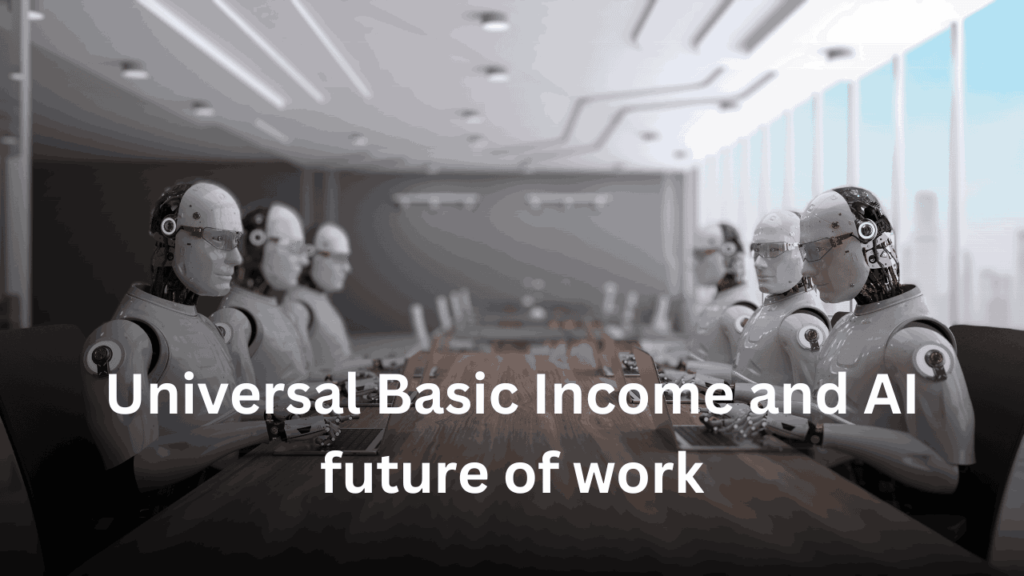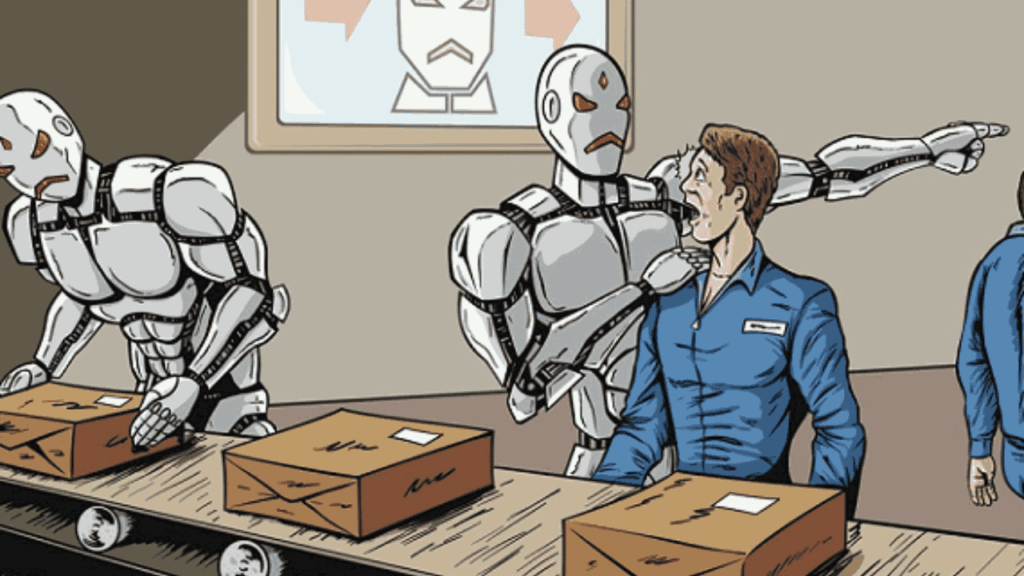
Universal Basic Income and AI is a worthy topic to debate as in a recent address at the Bletchley Park summit, Elon Musk delivered a thought-provoking perspective on the future of work. According to Musk, the development of artificial intelligence (AI) is progressing to a point where “no job is needed.” He suggested that AI could handle everything, leaving jobs as a choice for personal satisfaction rather than economic necessity. While this notion may sound both exciting and alarming, the question that arises is: How can society cope with the potential mass unemployment caused by AI, and what role does Universal Basic Income (UBI) play in this vision?
The AI Revolution and Unemployment:
Musk’s statement underscores the transformative power of AI and its potential to disrupt traditional employment structures. A McKinsey & Company study estimates that up to two-thirds of current jobs are exposed to some degree of AI automation, with generative AI alone possibly substituting up to one-fourth of existing work globally.

Universal Basic Income and AI
Universal Basic Income (UBI) stands as a compelling response to the transformative wave of Artificial Intelligence (AI) sweeping across industries. As AI advancements continue to reshape the landscape of work, concerns about job displacement and economic inequality have intensified. Universal Basic Income and AI, a concept gaining renewed attention, proposes a radical shift in economic policy by providing a regular, unconditional income to all citizens.
Universal Basic Income as a Solution:
The concept of UBI, though not a newcomer to the stage of societal discourse, has witnessed the ebb and flow of popularity across the centuries. Yet, in this generation dominated by the relentless march of artificial intelligence (AI), UBI is capturing the spotlight as a potential knight in shining armor. Karl Widerquist, a philosophical maestro stationed at Georgetown University-Qatar, paints a vivid narrative of AI’s potential to thrust white-collar workers into the dangerous domains of the gig economy, where reduced wages and heightened inequality become haunting specters.
In this high-stakes scenario, Universal Basic Income and AI emerges as a defiant safety net, a shield against the storm, standing poised to provide financial support and rectify the systemic failure of employers to equitably distribute the fruits of economic growth among the toiling masses.

UBI and Economic Equality:
Beyond being a safety net, proponents argue that UBI could be seen as a dividend owed to workers for their role in developing the knowledge used to train AI models. Scott Santens, the editor of Basic Income Today, questions why only a select few companies should benefit from the collective human work that contributes to AI advancements. UBI, in this view, becomes a means to share the benefits of AI-driven progress more equitably.
Experiments and Positive Impact of Universal Basic Income:
Several UBI experiments worldwide offer insights into its potential impact. In the Netherlands, a study conducted between 2017 and 2019 provided a basic income to unemployed individuals previously receiving social assistance. The results indicated increased participation in the labor market, not solely due to financial support but also because of the removal of traditional job-seeking conditions and sanctions. Loek Groot, one of the researchers, suggests that UBI can offer people with good alternatives the opportunity to reduce work or not work at all, highlighting the flexibility it provides.
Unexpected Entrepreneurship and Economic Growth:
In Kenya, the world’s largest UBI scheme has been running since 2017, providing a daily payment to thousands of people. Tavneet Suri, a member of the research team overseeing the project, notes surprising outcomes, including people leaving low-wage jobs to start businesses. This unexpected wave of entrepreneurship has had a positive impact, not only on those starting businesses but also on those in traditional employment, as a decreased workforce has led to increased salaries and economic growth.
Challenges and Skepticism:
While UBI experiments have shown positive outcomes, skepticism remains. Some argue that UBI might risk facilitating the proliferation of less stable jobs, rather than incentivizing people to seek more stable employment. Additionally, the economic feasibility of implementing UBI is a point of argument. Critics question whether even the most modest UBI proposals might necessitate substantial tax increases.
Conclusion:
Elon Musk’s vision of AI rendering jobs optional brings to light both the promises and challenges that lie ahead. Universal Basic Income and AI, as Musk terms it, could be a response to the potential disruption in the job market caused by automation. “We won’t have universal basic income. We’ll have universal high income,” Musk said, without clarifying how the two differ, so there must be something in his mind regarding to higher Universal Basic Income and AI.
Whether it’s a safety net, a dividend for workers, or a means to foster economic equality, UBI is gaining attention as a policy solution. As AI continues to advance, the conversation around the future of work, income distribution, and societal well-being will undoubtedly evolve, and UBI may play a crucial role in shaping this future.